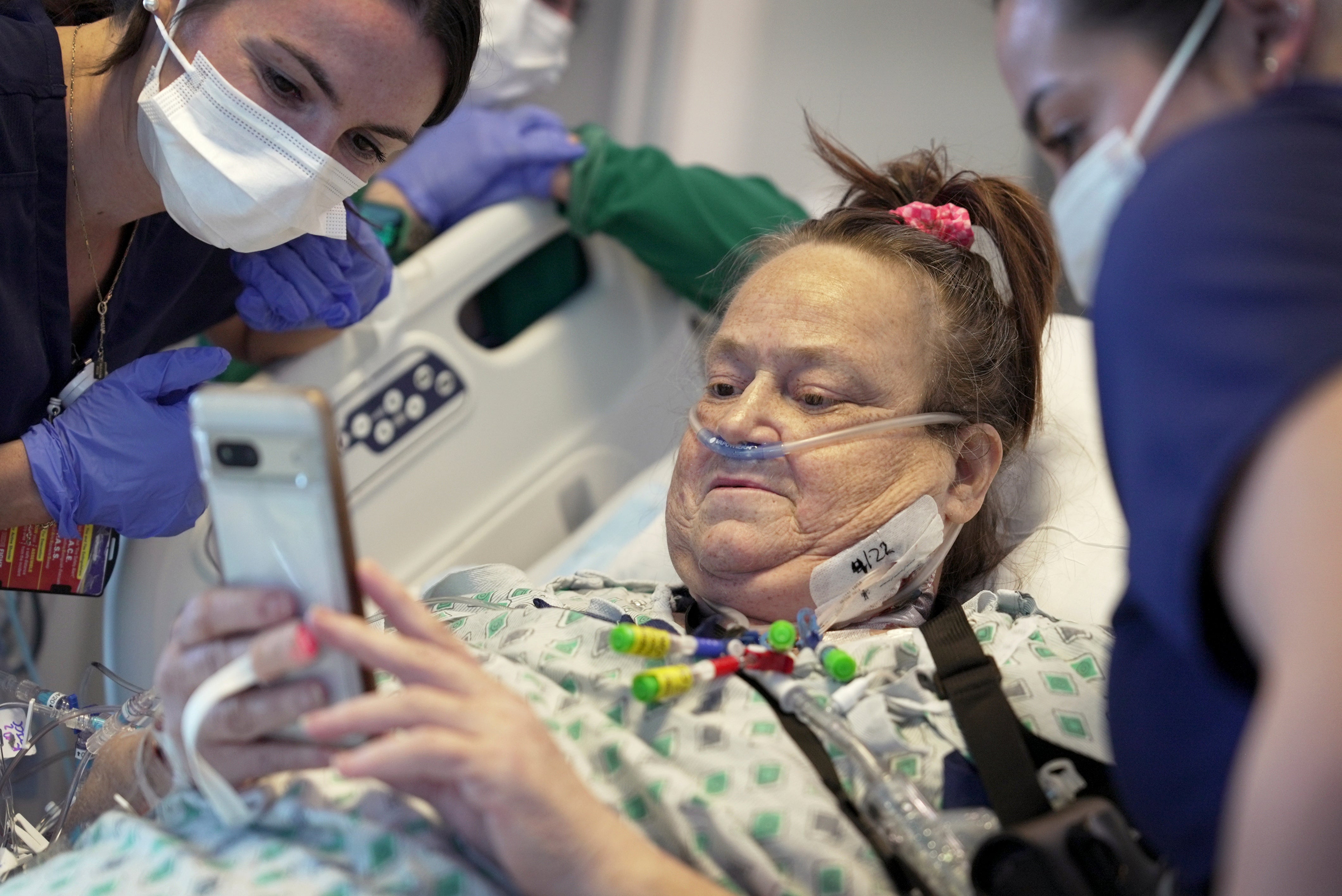Woman is back on dialysis after doctors remove transplanted pig kidney
Doctors say a woman who received a pig kidney transplant is back on dialysis after surgeons removed the gradually failing organ

Your support helps us to tell the story
From reproductive rights to climate change to Big Tech, The Independent is on the ground when the story is developing. Whether it's investigating the financials of Elon Musk's pro-Trump PAC or producing our latest documentary, 'The A Word', which shines a light on the American women fighting for reproductive rights, we know how important it is to parse out the facts from the messaging.
At such a critical moment in US history, we need reporters on the ground. Your donation allows us to keep sending journalists to speak to both sides of the story.
The Independent is trusted by Americans across the entire political spectrum. And unlike many other quality news outlets, we choose not to lock Americans out of our reporting and analysis with paywalls. We believe quality journalism should be available to everyone, paid for by those who can afford it.
Your support makes all the difference.A woman who received a pig kidney transplant is back on dialysis just 47 days later after surgeons removed the gradually failing organ.
Lisa Pisano was the second person to receive a kidney from a gene-edited pig, and NYU Langone Health announced that she is stable after an operation to remove the organ earlier this week.
The first patient to receive a pig kidney transplant, Richard “Rick” Slayman at Massachusetts General Hospital, died in early May, nearly two months after his transplant. Doctors there said there was no indication he died as a result of the experimental transplant.
Pisano’s heart and kidneys were failing when, in a dramatic pair of surgeries in April, doctors implanted a mechanical pump to keep her heart beating and then the pig kidney.
At first she seemed to be recovering well. But Dr. Robert Montgomery, who led the transplant, said there were “unique challenges” to managing both the heart pump and new kidney. Her blood pressure dropped too low multiple times for optimal blood flow to the kidney.
The kidney lost function until doctors on longer could justify keeping her on immune-suppressing medications, Montgomery said in a statement Friday.
A recent kidney biopsy showed no signs of rejection – the biggest concern in highly experimental animal-to-human transplants – but there was “significant injury” from insufficient blood flow, he said. NYU will further study the explanted kidney for further insight on how it reacted inside a living person.
Montgomery noted Pisano wasn't a candidate for the life-prolonging heart pump while on dialysis, and her heart disease in turn barred a traditional kidney transplant.
“We are hoping to get Lisa back home to her family soon,” he said. “Her strength and bravery in the face of adversity inspires and drives us as we continue pursuing the hope and promise of xenotransplantation.”
Pisano told the Associated Press in April that she knew the pig kidney might not work but “I just took a chance. And you know, worst case scenario, if it didn’t work for me, it might have worked for someone else.”
More than 100,000 people are on the U.S. transplant waiting list, most who need a kidney, and thousands die waiting. In hopes of filling the shortage of donated organs, several biotech companies are genetically modifying pigs so their organs are more humanlike, less likely to be destroyed by people’s immune system.
Formal studies of such organs are expected to begin next year. Meanwhile, NYU and other research teams have temporarily transplanted pig kidneys and hearts into brain-dead bodies, with promising results. In addition to the Mass General pig kidney transplant, the University of Maryland transplanted pig hearts into two men who were out of other options, and both died within months.
___
The Associated Press Health and Science Department receives support from the Howard Hughes Medical Institute’s Science and Educational Media Group. The AP is solely responsible for all content.